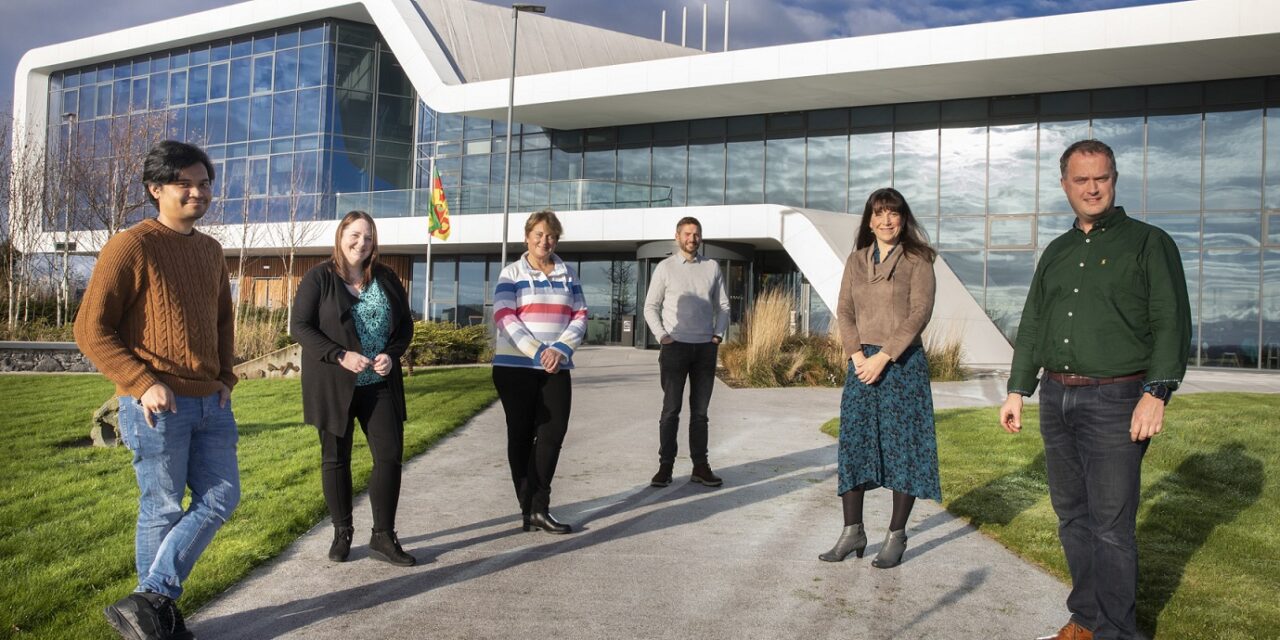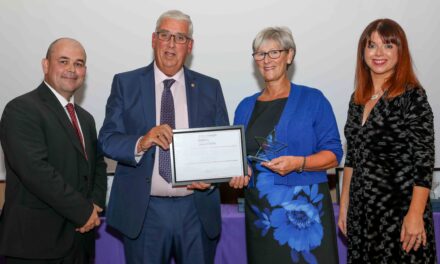A fast-growing consultancy firm is aiming to kick-start an economic revolution in rural North Wales.
Lafan Consulting Group are doubling their workforce to six members of staff to meet the demand for their expertise in using digital technology, facilitating, project management and setting up supply chains.
Managing director Geraint Hughes says that far too often the profits from Welsh enterprises end up outside Wales.
It was therefore vitally important for farmers, food and drink producers and other businesses to take control of their own destiny and create a “circular economy”.
Mr Hughes said: “We have reached the stage where we have a lot of work in the pipeline and there is growing demand for our consultancy work.
“As a result, it’s very important that we create extra capacity to cater for the increased workload, not just with a higher headcount but also with a wider skill base.
“Another factor is that so much intellectual property work is being carried out by companies from the other side of Offa’s Dyke, essentially commissioning people to come here and tell us what to do.
“We have the ability to do this kind of thing ourselves and while we have some brilliant individuals we don’t necessarily have companies that can compete with larger scale projects which need greater capacity.
“What we’re doing is bring together people with a range of skills and experience to offer a service meeting the needs of rural Wales because we are going to see a revolution over the next decade in terms of new policies and fundamental economic changes.”
As part of the drive to make the most of the Welsh pound, Lafan, which has bases in Pwllheli, Bangor, Blaenau Ffestiniog and Chester, has made three key appointments.
Among the new recruits is Zoe Pritchard, who previously worked for enterprise agency Menter Môn, where she was a senior manager running a raft of projects.
She said: “I enjoy working with communities and building partnerships. We have so much talent in North Wales and being part of that is a privilege because there are so many opportunities and potential. It’s incredibly exciting.
“We have so many natural resources here and we need to take ownership so that we can make sure the income comes back to North Wales as part of the circular economy.
“At the moment I’m working with the Neges project with Menter Môn where we are trying to set up a supply chain with local food and drink producers and selling to the tourism and hospitality industry, creating a new market for them.”
Another new member of the team is multilingual Irfan Rais, who hails from Singapore, and speaks several languages including Welsh which he learned at while studying at Bangor University where he gained a degree in music and creative writing before going on to complete a PhD in the distinctive folk music found along the Menai Strait.
He said: “As the rural innovation officer, I suppose I am the factfinder of Lafan and I work for our clients to see how we can achieve their innovation goals. It involves a lot of research on my part. Finding out things quickly is a strength of mine.
“I am excited about working with Lafan because the work is stimulating and we can make a real difference to rural enterprises and help them achieve their potential.”
Business systems specialist James Hughes has previously worked with Lafan on a freelance basis for a number of years and from January he will be a permanent member of staff.
He said: “I am doing digital mentoring work, helping with websites and social media. Our aim is to help build the rural economy by working with private companies and public bodies, giving people here more control over their own destiny.
“There are plenty of very able people and we just need to give them the tools so they can flourish.”
Other members of the team include former headteacher Meinir Jones, an experience project manager and education consultant, who delivers training and materials for organisations across Wales and long-serving office manager Heulwen Williams
Mr Hughes added: “The golden thread that runs through everything we do is our mission to develop and grow the economy of rural Wales. That’s something that’s very close to our hearts here at Lafan.
“There is no point moaning we need to take responsibility for ourselves and the long-term answer is strengthening the economy in our rural communities by being smarter and keep the money circulating locally.
“We are aiming to be in the vanguard of developing agri-tech, working with Tech Tyfu to use new methods like vertical farming which can provide another income stream in rural Wales.
“We have a reputation for taking on unusual projects and we are reaching the stage where we are seeing our efforts bearing fruit.
“We have brought a new breed of sheep to Wales through our work as an Innovation Broker for the European Innovation Partnership. The Damara sheep have come from Australia but they originated in the Middle East and have now been crossed with Welsh ewes to produce a distinctive leaner meat thats now being markets under the ‘Damara Môn’ brand by local farmers
“We’re also looking at sheep that produce wool of a higher quality and at the same time we are looking at ways of increasing the value of Welsh wool by looking at new and innovative uses for it.
“None of this would be possible without our brilliant partners, including local enterprise agencies, businesses, community groups, non-governmental organisations, local authorities and universities across the UK.”
“Traditionally, we have been excellent at animal husbandry, growing things and making things but not so good at creating supply chains to get our products to market.
“What we need to do is to ensure that rural businesses have more control over their own destiny and we can only achieve that by creating dedicated supply chains.
“At the moment, once something leaves the farm, the farmer has no control – and that’s one reason the rural economy is suffering.
“We want to see rural Wales thriving – that’s what’s driving us at Lafan. Our strapline is Making it Happen Together by working with people in an inclusive way.”










